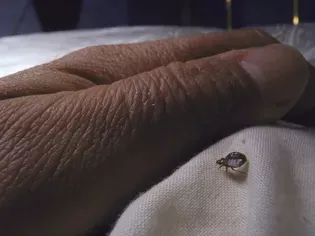Can Your Pet Get Bed Bugs?
Updated on 04/26/24

Can Your Pet Get Bed Bugs? The Ultimate Guide to Pet Owners
Introduction
As a loving pet owner, you want to provide the best possible care for your furry companion. This includes protecting them from potential health risks, such as bed bugs. These tiny insects can infest your home and cause significant discomfort to both your pets and yourself. In this comprehensive guide, we will explore the possibility of bed bugs affecting your pet, discuss the signs and symptoms, and provide effective pest control strategies to keep your home and pets safe.
Can Bed Bugs Bite Pets?
Yes, bed bugs can bite pets. While these insects primarily feed on human blood, they will not hesitate to bite animals if humans are not available. Pets commonly affected by bed bugs include cats, dogs, rabbits, and rodents.
How Common Are Bed Bugs in Pets?
Bed bugs are not as common in pets as they are in humans. This is because pets typically do not sleep in the same bed as their owners. However, bed bugs can travel on pets from infested areas to your home, increasing the likelihood of an infestation.
Signs and Symptoms of Bed Bug Bites in Pets
The signs and symptoms of bed bug bites in pets can vary depending on the individual animal. Some common indications include:
* Skin irritation: Redness, itching, and bumps at the bite site
* Hair loss: Bed bugs can cause hair loss in affected areas
* Behavioral changes: Pets may become restless, anxious, or avoid certain areas due to discomfort
* Lethargy: Blood loss from bed bug bites can lead to weakness and fatigue
Can Bed Bugs Live on Pets?
No, bed bugs cannot live on pets. They are temporary parasites that feed on their host's blood and then retreat to their hiding places. Bed bugs prefer to hide in cracks and crevices near human sleeping areas, such as beds, headboards, and furniture.
How Can Bed Bugs Get into Your Home from Pets?
Bed bugs can enter your home through infested pet bedding, carriers, or other items that have come into contact with bed bugs. For example, if your pet visits a hotel or boarding facility, they may inadvertently pick up bed bugs that can then be transferred to your home.
Prevention and Control Strategies for Bed Bugs in Pets
Preventing bed bug infestations:
* Regularly inspect your pet's bedding, carriers, and other belongings for signs of bed bugs.
* Vacuum your pet's bedding regularly and wash it in hot water.
* Avoid bringing used furniture or bedding into your home.
* If your pet stays in a hotel or boarding facility, ask about their pest control practices.
Controlling bed bug infestations:
* If you suspect your pet has bed bugs, contact a licensed pest control professional immediately.
* Use pet-safe bed bug treatments, such as diatomaceous earth or insecticidal sprays.
* Vacuum thoroughly, paying particular attention to areas where bed bugs might hide.
* Wash all bedding and pet belongings in hot water.
* Isolate infested areas to prevent the spread of bed bugs.
Specific Tips for Different Pets:
Cats:
* Check your cat's fur for bed bugs, especially around the ears, neck, and tail.
* Trim your cat's nails to prevent them from scratching at itchy bites.
* Provide your cat with a clean and comfortable bed away from infested areas.
Dogs:
* Inspect your dog's skin and bedding regularly for signs of bed bugs.
* Use a flea and tick shampoo to kill any bed bugs that may be present.
* Keep your dog's bedding clean and avoid allowing them to sleep in infested areas.
Rabbits:
* Examine your rabbit's fur and cage for bed bugs.
* Provide fresh hay and water daily to keep your rabbit healthy and hydrated.
* If your rabbit shows signs of bed bug bites, contact a veterinarian for treatment.
Rodents:
* Inspect your rodent's cage and bedding for bed bugs.
* Clean the cage regularly and provide fresh bedding.
* If your rodent shows signs of bed bug bites, contact a veterinarian for treatment.
Protecting Your Pets from Bed Bugs: A Responsibility of All Pet Owners
As a responsible pet owner, it is essential to be aware of the potential risks of bed bugs for your furry companion. By implementing the prevention and control strategies outlined in this guide, you can minimize the chances of an infestation and provide a safe and healthy environment for your beloved pets. Remember, early detection and prompt pest control measures are key to protecting your pets and your home from bed bugs.
Explore More Pets

Basic Training
Puppy and Baby Introductions

Working Dog Breeds
All About Search and Rescue Dogs

Dog Treatments
Puppy Vaginitis: Signs, Causes and Treatment

Dog Adoption
After More Than 1,200 Days in the Shelter, Coco Goes Home

Basic Training
How to Train Your Puppy to Go on Potty Pads

Hybrid Dog Breeds
The Difference Between a Mutt, Mixed Breed, or Designer Dog?

Dog Treatments
Nail Problems in Dogs

Puppies
7 Reasons Why Two Dogs Are Better Than One